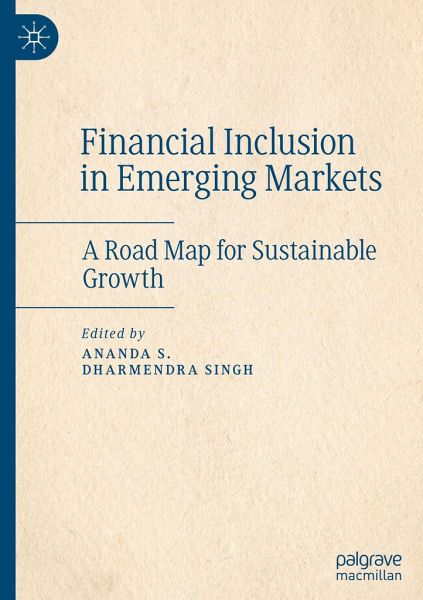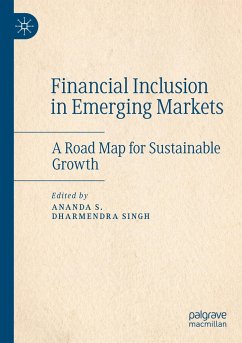
Financial Inclusion in Emerging Markets
A Road Map for Sustainable Growth
Herausgegeben: S., Ananda; Singh, Dharmendra

PAYBACK Punkte
53 °P sammeln!
This book discusses ideas for stakeholders to develop strategies to access and use financial products and services such as deposits, loans, and fund transfer mechanism, insurance, payment services, and intermediaries, distribution channels at economical prices in order to cater to the needs of the poor and underprivileged people.Financial inclusion ensures ease of access, availability, and usage of the financial products and services to all the sections of the society. The book will help in recognizing the role of financial inclusion as one of the main drivers in reducing income inequality and...
This book discusses ideas for stakeholders to develop strategies to access and use financial products and services such as deposits, loans, and fund transfer mechanism, insurance, payment services, and intermediaries, distribution channels at economical prices in order to cater to the needs of the poor and underprivileged people.
Financial inclusion ensures ease of access, availability, and usage of the financial products and services to all the sections of the society. The book will help in recognizing the role of financial inclusion as one of the main drivers in reducing income inequality and thus supporting sustainable economic growth of the countries, especially of an emerging economy. The book provides conceptual and practical ideas from the practitioners, best practices from the experts, and empirical views from the researchers on the best practices and how to mitigate the challenges and issues plaguing the development of the financial inclusion.
Financial inclusion ensures ease of access, availability, and usage of the financial products and services to all the sections of the society. The book will help in recognizing the role of financial inclusion as one of the main drivers in reducing income inequality and thus supporting sustainable economic growth of the countries, especially of an emerging economy. The book provides conceptual and practical ideas from the practitioners, best practices from the experts, and empirical views from the researchers on the best practices and how to mitigate the challenges and issues plaguing the development of the financial inclusion.














